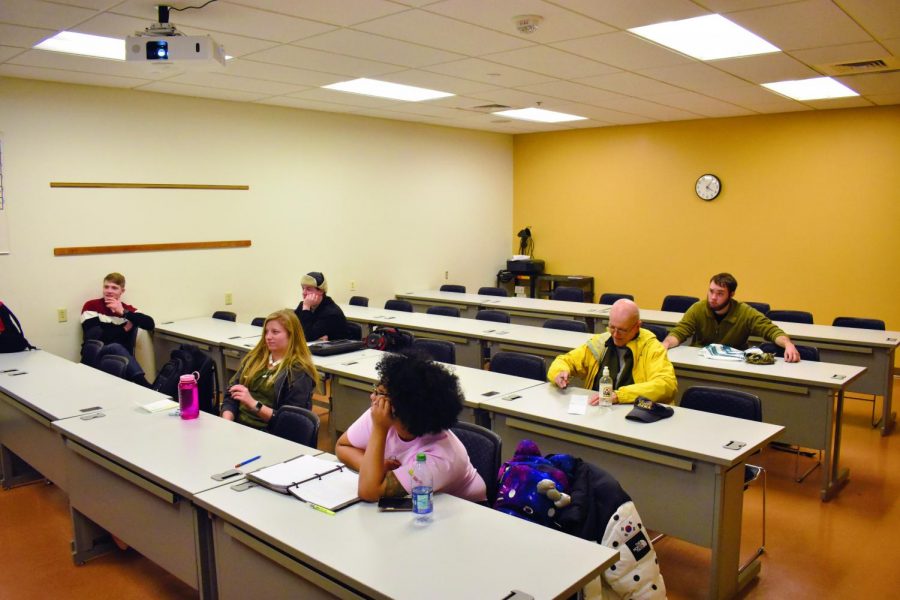Student-run clubs offer increased involvement
March 1, 2019
Students who belong to campus clubs say they benefit socially and professionally from taking part in extracurricular activities.
Joining campus organizations helps students make friends and gives them experiences that will benefit them in the future, club members said.
“You make so many amazing friends and professional connections by being more active in the college community,” Student Government Association President Jacob Smith said.
“I would say everyone would benefit from being in a student organization,” said AACC Program Coordinator Leslie Cook, who oversees student clubs. “If you join the video club, and you’re really interested in that type of artwork, you will gain experiences.”
Nearly 70 student clubs meet on the Arnold campus.
Clubs with at least 10 members qualify for SGA funding. That translates into almost 700 students who are involved in campus clubs this semester.
Some clubs have dozens of members, while others meet with smaller groups.
Smith said AACC has clubs for all types of student interests.
“No matter what your interest is, we have something on campus that meets it,” he said.
Cook said the college allots approximately $158,000 a year to student clubs and activities. Club members spend the money on events, activities, trips and refreshments.
Cook said the college gets a good return on its money.
“The college gets back a sense of community,” Cook said. “Just having activities on campus promotes a sense of community on campus.”
Plus, she said, students who participate in clubs tend to stay at AACC longer than those who simply attend classes and then leave campus.
“Hopefully if students find a place where they belong, they will want to stay in school and stay on the campus,” Cook said.
A study from College of DuPage in Illinois found that students who participate in extracurricular activities have fewer behavior problems; higher grades; a positive attitude toward school and are more likely to graduate.
In addition, club members learn skills like leadership; teamwork; time management and analytical thinking as they plan events; lead meetings and discover hidden talents and interests, the study said.
“My life if I didn’t join a club? God, that would be boring,” Garrett Hutchinson, president of the Gay-Straight Alliance, a student club, said. “I know a lot of people on campus because I’ve joined a club.”
He added: “It’s a great way to add purpose at the college. [Clubs] are a great way to give back not only to the college, but to yourself … to create an experience with the knowledge you gain.”
AACC graduate Nyia Curtis, who works at the information desk in the Student Services Center, belonged to 10 clubs when she was a student from 2015 to 2018. Among them were Campus Current, SGA, the Entrepreneurs Club and Students Out to Destroy Assumptions—or SODA—club.
“I definitely encourage people to get involved,” Curtis said, but she advised students to join fewer clubs than she did.
Clubs are “important because you can potentially get experience for what you’re going to school for and [they] help you not only network but figure out what you want to do for a career,” Curtis said.












